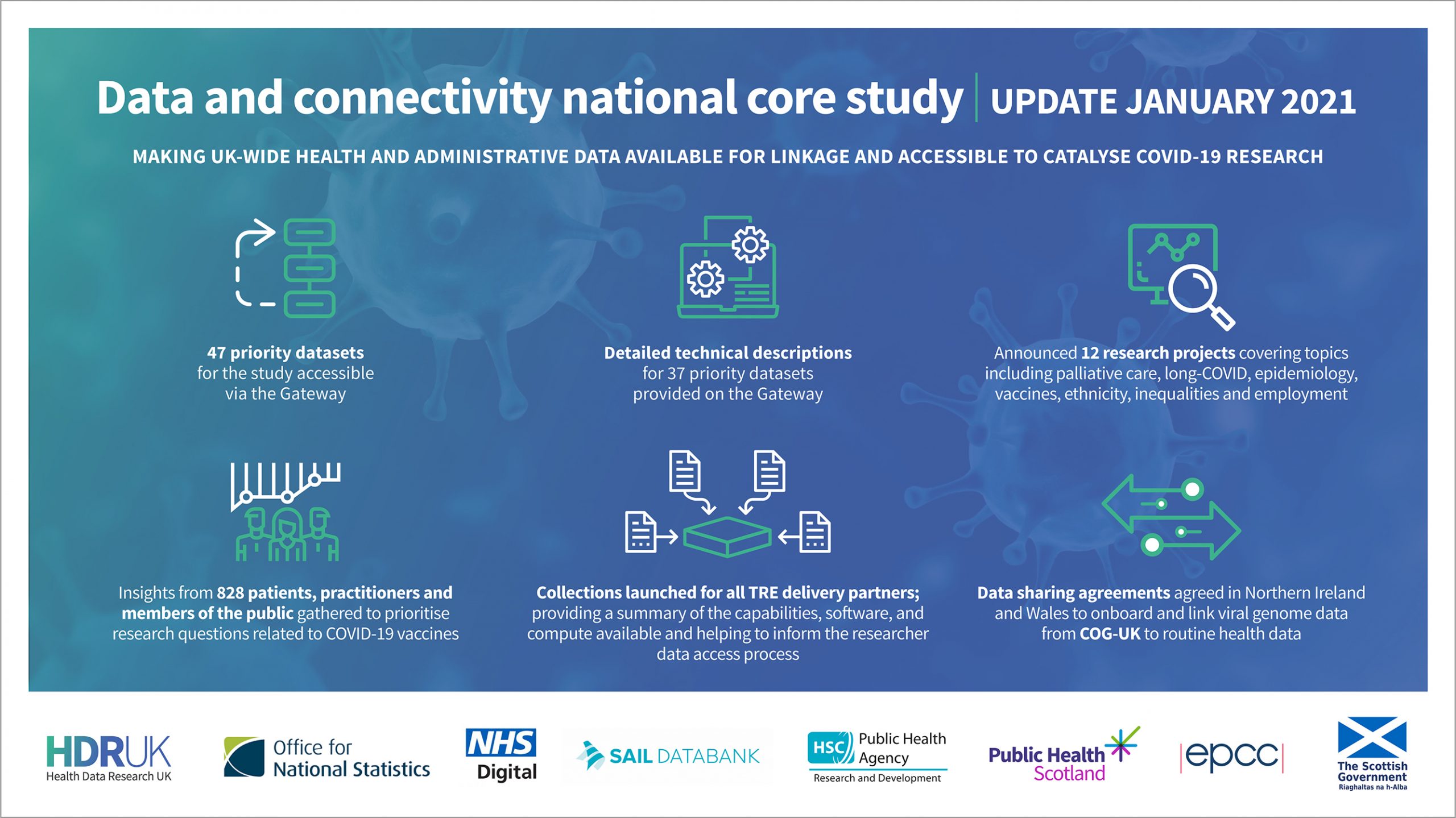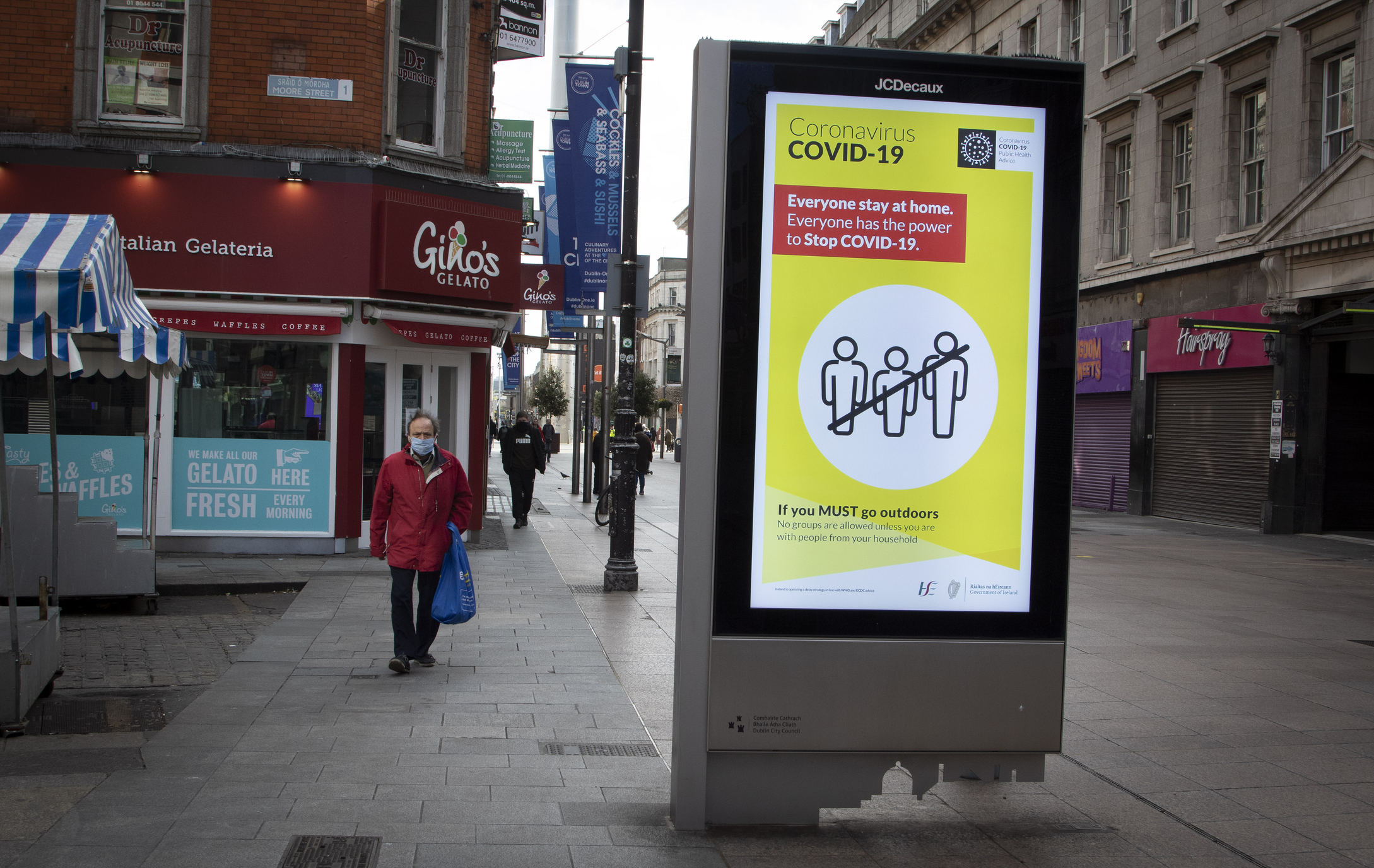At Health Data Research UK we are continuing to work in partnership to support the UK government and the NHS in England, Northern Ireland, Scotland and Wales to enable rapid health data research into COVID-19. The highlights for this update include:
- HDR UK’s latest report to SAGE
- National Core Studies – Data and Connectivity – Progress Report
- Gaining patient, public and practitioner views on vaccines data research
HDR UK’s latest report to SAGE
Our latest report to SAGE (the Government’s Scientific Advisory Group for Emergencies) continues to demonstrate the ongoing significance of health data to the research response to COVID-19. The report includes research insights that emerged over the Christmas and New Year period.
These include:
- Increased rate of transmission of the new variant. Two independent analyses by Imperial College London and the CMMID COVID-19 Working Group of the new SARS-CoV-2 variant (VOC 202012/01; the UK strain that emerged in the south of England) have found it to be around 50% more transmissible than other variants presenting a major challenge for on-going control of COVID-19.
- Tocilizumab and sarilumab – immune modulators – improve survival in critically ill patients with COVID-19. This followed research using trial data from REMAP-CAP (Randomised, Embedded, Multifactorial, Adaptive Platform Trial for Community-Acquired Pneumonia).
- Public willingness to receive a vaccine. Results from the latest ONS Opinions and Lifestyle Survey show a marginal increase in public willingness to be vaccinated, whilst support for mass testing remained the same. Specifically, 85% of adults would be either very likely or fairly likely to have the COVID-19 vaccine if offered and 81% of adults strongly supported or tended to support mass testing for COVID-19.
- Significant increase in clinical trial participants. PRINCIPLE achieved a 25% increase in participants to the trial following the establishment of data flows of COVID-19 positive test results to support recruitment. The RECOVERY trial has now recruited over 26,000 patients, an increase of 40% in the last 4 weeks.
- Increase in projects enabled by data. There are now 242 active COVID-19 research projects enabled by data, with many of the new projects enabled by data via NHS Digital and the Scottish National Data Safe Haven.
We are continuing to bring together COVID-19 research questions that are using data and these are published and updated on the Health Data Innovation Gateway.
National Core Studies – Data and Connectivity – Progress Report
Established in October 2020, the National Core Studies programme consists of six studies, including the cross-cutting Data and Connectivity Study, which is led by Health Data Research UK and the Office for National Statistics. Data and Connectivity supports the other National Core Studies to rapidly answer key COVID-19 research questions by enabling streamlined access to priority linked datasets, through Trusted Research Environments.
This month’s report is published here and details the key progress and achievements made by the delivery partners across the four nations and the key datasets that are now available for vital COVID-19 research. A summary of highlights is provided in the infographic below.
Our recently published interview with Professor Sharon Peacock, Director of COG-UK, continues our series of video blogs. Sharon shares what we’ve learnt from genome sequencing of the COVID-19 virus and how the data from this is vital for understanding transmission, how to treat the disease and the effectiveness of vaccines.
“This is an opportunity to thank Health Data Research UK colleagues who have been instrumental in helping us understand data flow and data capture and linking genome data with clinical and epidemiological information on the people from which the virus has been identified” – Sharon Peacock

Retraction: Gaining patient, public and practitioner views on vaccines data research
The previously linked report ‘Vaccine Research Question Prioritisation Patient, Public and Practitioner Involvement and Engagement’ has been formally retracted by Health Data Research UK (HDR UK). The provenance of the public survey data could not be verified as part of a detailed independent review. HDR UK apologises to readers.



